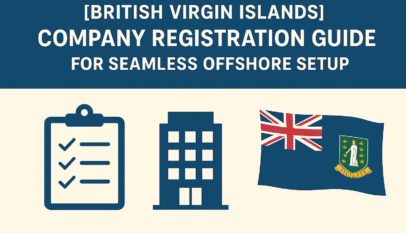
A pharmaceutical management consultant helps companies navigate the complexities of drug development, regulatory compliance, and market strategy. They bring specialized expertise to optimize operations, manage risks, and improve project outcomes in a highly regulated and competitive industry. Their role is crucial for pharmaceutical firms aiming to enhance efficiency, ensure compliance, and successfully bring products to market.
These consultants often work across various areas, including R&D, clinical trials, supply chain management, and commercialization strategies. By providing tailored solutions, they enable pharmaceutical companies to meet industry demands while adapting to evolving regulations and market conditions.
A Pharmaceutical management consultants combine deep industry knowledge with strategic planning skills to address operational challenges. Their guidance supports companies in accelerating innovation and maintaining competitive advantage amid intense market pressures.
Core Services Provided By Pharmaceutical Management Consultants
Pharmaceutical management consultants offer targeted expertise to address critical business areas. They guide companies through complex market dynamics, regulatory landscapes, operational challenges, and supply chain intricacies. Their work supports sustainable growth and industry compliance.
Strategic Planning and Market Analysis
Consultants help pharmaceutical firms develop clear strategies aligned with current market conditions and future trends. They analyze competitor activity, product positioning, and patient demographics to identify growth opportunities. This involves assessing pipeline products, market entry barriers, and pricing models.
They often use data-driven approaches such as SWOT analysis and forecasting to optimize decision-making. This insight enables companies to allocate resources effectively, prioritize development programs, and tailor marketing tactics. The goal is to maximize product lifecycle value and align business objectives with market demands.
Regulatory Compliance and Risk Assessment
Navigating regulatory requirements is a key service provided by pharmaceutical management consultants. They ensure companies meet global and regional regulations related to drug development, approval, and post-market surveillance. This includes managing submissions, audits, and quality standards.
Consultants conduct risk assessments to identify compliance gaps, potential liabilities, and operational weaknesses. They also assist in developing corrective action plans and establishing robust quality management systems. Staying current on evolving regulations from bodies like the FDA and EMA is critical to avoid costly delays or sanctions.
Operational Efficiency Improvement
Improving operational processes is essential for reducing costs and accelerating time-to-market. Consultants analyze workflows, clinical trial management, and manufacturing operations to identify inefficiencies. They recommend process redesign, automation, and best practices to enhance productivity.
They may also support resource planning and talent management to align capabilities with project demands. By optimizing operations, companies can speed product development timelines, reduce errors, and improve overall organizational performance.
Supply Chain Optimization
Consultants address the complexities of pharmaceutical supply chains, from raw material sourcing to product distribution. They evaluate supplier relationships, inventory management, and logistics strategies. Their recommendations aim to increase supply reliability and reduce costs.
Risk mitigation is a focus, ensuring continuity despite disruptions like shortages or regulatory changes. Implementing advanced tracking, demand forecasting, and lean inventory practices helps maintain product availability and compliance throughout the supply chain.
Selecting The Right Pharmaceutical Management Consultant
Choosing a pharmaceutical management consultant involves evaluating their credentials, understanding their industry focus, and clarifying their engagement and pricing models. These factors ensure alignment with a company’s specific operational and strategic needs.
Key Qualifications and Experience
The consultant’s qualifications must include a strong background in pharmaceutical sciences, regulatory affairs, or business management related to the pharma sector. It is critical that they have direct experience with regulatory submissions, quality systems, or clinical trial processes.
Proven success in previous projects shows practical knowledge beyond theoretical skills. Certifications like PMP (Project Management Professional) or expertise in specific compliance standards (e.g., FDA, EMA regulations) add credibility. Experience working with companies of similar size or product types also matters, as this ensures familiarity with relevant operational challenges.
Industry Specialization
Pharmaceutical management consultants should ideally specialize in the segment where the client operates, such as biotech, generics, or specialty drugs. Different sectors face unique regulatory and market challenges, necessitating targeted expertise.
Specialists in drug development and commercialization bring insights into clinical trial management and market access strategies. Others might focus on manufacturing or regulatory compliance. The right consultant will demonstrate knowledge of your specific therapeutic areas and market dynamics, which improves the quality of strategic recommendations.
Engagement Models and Pricing Structures
Consultants offer various engagement models including hourly rates, fixed-fee projects, and retainer agreements. Hourly billing suits short-term or advisory roles, while fixed fees are common for defined projects such as regulatory submissions or audits.
Retainer models offer ongoing support and strategic partnership, which benefits companies needing continuous guidance. Pricing structures should be transparent, with clear deliverables and milestones. Companies should evaluate if the consultant’s fees align with expected outcomes and budget constraints before engagement.
British Virgin Islands Company Registration Guide for Seamless Offshore Setup
Registering a company in the British Virgin Islands (BVI) is a straightforward process tha…








